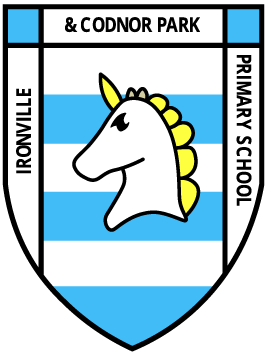History
Welcome to our page about the History curriculum.
If you would like more information about how we teach History at Ironville & Codnor Park Primary School, please speak to our History subject leader, Ms J Wilson, or contact her via email at info@ironvillecodnorpark.derbyshire.sch.uk.
At Ironville & Codnor Park, we teach History across three of our six terms within a two-year curriculum cycle. We follow the National Curriculum for History across Key Stages 1 and 2, providing our pupils with a rich and well-structured understanding of Britain’s past and that of the wider world.
History at our school is much more than learning dates and facts. It is about helping children to become curious, critical thinkers who can explore the past and consider how it shapes our lives today. Through a carefully planned sequence of topics, children develop a sense of time, learn about significant people and events, and explore how civilisations and societies have changed over thousands of years.
Our History curriculum is designed to build progressively over time. Children revisit key historical themes such as leadership, power, settlement, society and innovation, with increasing depth and complexity as they move through the school. This allows them to make connections between different periods and places, and to develop a secure understanding of continuity and change, cause and consequence, and historical significance.
Children study a wide range of topics including local history, the Romans, Anglo-Saxons and Vikings, Ancient Greece and Egypt, the Victorians, and significant moments such as the Great Fire of London and World War II. Each topic builds on prior learning and allows children to explore contrasting civilisations, key turning points in British history and how historical events have shaped our world today.
An important part of our History teaching is the development of oracy skills. We encourage children to speak confidently about what they have learned, to explain their thinking clearly, and to use subject-specific vocabulary accurately. Through discussions, debates, presentations and questioning, children practise expressing ideas and opinions, comparing perspectives, and justifying their views using historical evidence.
By the end of their time with us, children will have gained a strong sense of chronology, a broad understanding of key historical periods, and the ability to think like historians—asking questions, evaluating sources and reflecting on different interpretations of the past. Most importantly, we want every child to leave us with a deep interest in History, a respect for the lives and experiences of people in the past, and the skills to continue exploring the world around them.
History National Curriculum
History Websites















































